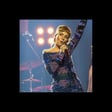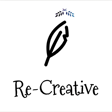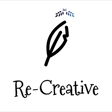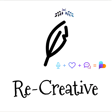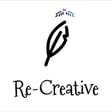
Spencer Evans on Ray Charles
Spencer Evans is a working musician in Kingston, Ontario. He joins Mark and Joe to discuss the influence that Ray Charles had on him as piano player and entertainer, as well as the impact that Charles had on the history of music in America and the world.
Spencer is an old pal of Mark’s, back from their days at Queen’s University (in Kingston, ON), when they were both members of the cabaret group, Queen’s Players.
“I know for a fact that Spencer can play the hell out of a Ray Charles song. And sing the hell out of it too!” Mark says of Spencer’s choice of musical pick.
“He embodies everything that music is to me. The passion, the artistry, the individuality, the fighting against chaos,” Spencer says. He talks about how many facts of Ray Charles’ early life were stacked against him, yet did not prevent him from becoming an incredibly influential figure in American music.
For more information, check out the show notes for this episode.
Re-Creative is produced by Donovan Street Press Inc. in association with MonkeyJoy Press.
Contact us at joemahoney@donovanstreetpress.com
